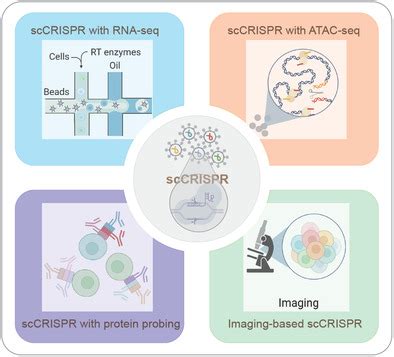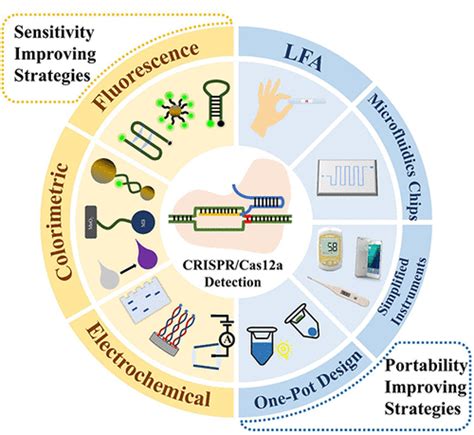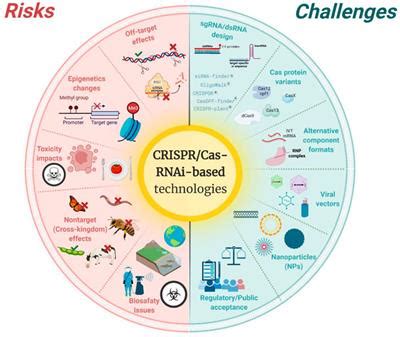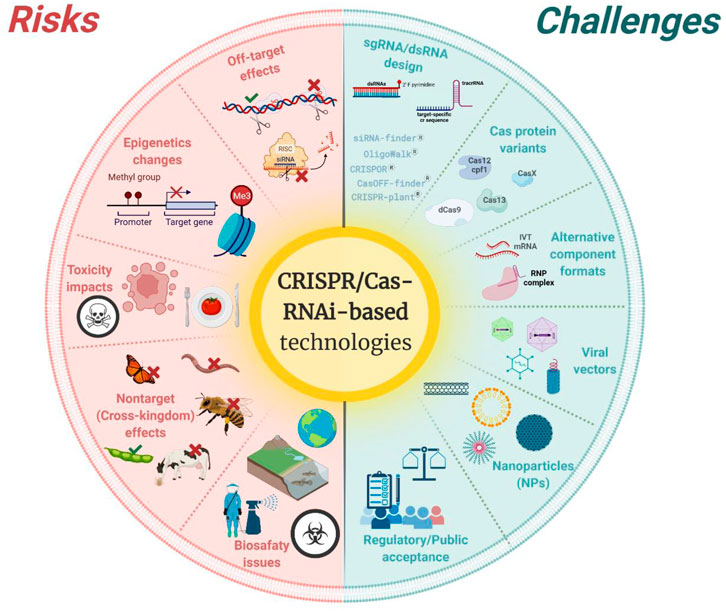CRISPR genome editing is a groundbreaking technology that has revolutionized the field of biotechnology, offering unprecedented precision and efficiency in modifying DNA. Originally discovered as a defense mechanism in bacteria, CRISPR technology has rapidly evolved, making significant strides in medicine, agriculture, and beyond. This article delves into the inner workings of CRISPR, exploring recent breakthroughs that have pushed the boundaries of genetic research. We will also examine its diverse applications, from developing disease-resistant crops to pioneering gene therapies for complex diseases. Alongside its promise, ethical concerns and scientific challenges arise, highlighting the importance of responsible use and consideration of CRISPR’s future impact on biotechnology.
Explore this topic thoroughly with qert.xyz
1. Overview of CRISPR Technology and Its Mechanism
CRISPR, short for Clustered Regularly Interspaced Short Palindromic Repeats, is a revolutionary gene-editing technology derived from the natural defense systems of bacteria. This technology uses a specialized enzyme called Cas9, or CRISPR-associated protein 9, which acts like molecular scissors to cut DNA at precise locations. The process begins with the Cas9 enzyme guided by a customized RNA sequence that matches the DNA target, allowing it to locate the specific genetic code intended for modification. Once the DNA is cut, the cell’s natural repair mechanisms kick in, which can be harnessed to add, delete, or alter genetic material.
The simplicity, efficiency, and versatility of CRISPR-Cas9 have made it a popular tool in genome editing, revolutionizing research across multiple scientific fields. This technology allows researchers to study gene functions, create genetically modified organisms, and even explore gene therapies for previously untreatable genetic disorders, making CRISPR one of the most powerful and transformative tools in modern biotechnology.

2. Breakthroughs in CRISPR Genome Editing: Recent Advances
Recent advances in CRISPR genome editing have pushed the boundaries of what is possible in genetic research. One of the most notable breakthroughs is the development of CRISPR-Cas9 variants, such as base editors and prime editing, which allow precise changes to individual DNA bases without cutting the DNA strand entirely. This innovation significantly reduces the risk of unintended mutations and increases the accuracy of gene editing.
Another major advancement is the successful application of CRISPR in human clinical trials, targeting genetic disorders like sickle cell anemia and beta-thalassemia. Patients have shown remarkable improvements, demonstrating CRISPR’s potential as a therapeutic tool. Additionally, CRISPR has been used to engineer more resilient crops, addressing global challenges like food security and climate change.
The emergence of CRISPR-Cas systems beyond Cas9, such as Cas12 and Cas13, has expanded its capabilities, enabling researchers to target RNA as well as DNA, paving the way for new diagnostics and treatments for viral infections and other diseases.

3. Key Applications of CRISPR in Medicine and Agriculture
CRISPR technology has transformed medicine and agriculture, unlocking new possibilities for treating genetic diseases and enhancing crop resilience. In medicine, CRISPR is being used to develop innovative gene therapies for conditions like cystic fibrosis, muscular dystrophy, and certain cancers. By precisely targeting and modifying faulty genes, CRISPR holds the potential to cure inherited disorders at their source, offering hope for patients with previously untreatable conditions. Additionally, CRISPR-based diagnostics, such as CRISPR-Cas systems adapted to detect viral infections, provide rapid and accurate testing methods, enhancing public health responses to diseases like COVID-19.
In agriculture, CRISPR is revolutionizing crop and livestock improvement by enabling precise genetic modifications that increase yield, enhance nutritional value, and improve resistance to pests, diseases, and environmental stresses. For example, scientists have developed CRISPR-edited crops that can thrive in harsh climates, addressing global food security challenges. Livestock is also being genetically edited for better disease resistance, improving animal welfare and productivity, showcasing CRISPR’s vast potential to reshape agriculture sustainably.

4. Ethical Concerns and Debates Surrounding CRISPR
The rise of CRISPR genome editing has sparked significant ethical concerns and debates within the scientific community and beyond. One major issue is the potential for “designer babies,” where CRISPR could be used to make genetic modifications in embryos to enhance traits such as intelligence or physical appearance. This raises questions about the ethical implications of altering human genetics for non-medical reasons, potentially leading to social inequality and the commodification of human life.
Another concern is the long-term effects and unintended consequences of gene editing. While CRISPR offers precision, off-target effects—where unintended parts of the genome are altered—pose risks that are not yet fully understood. The possibility of these unintended changes being passed down to future generations adds an additional layer of complexity and concern.
In agriculture, the use of CRISPR to modify crops and livestock raises issues about biodiversity and ecological balance. Genetically modified organisms could potentially disrupt ecosystems and lead to unforeseen environmental impacts.
Regulatory frameworks and ethical guidelines are crucial to addressing these concerns, ensuring that CRISPR technology is used responsibly and equitably. Ongoing public dialogue and ethical review are essential to navigating the complex moral landscape surrounding this transformative technology.
5. Challenges and Limitations in CRISPR Research
Despite its transformative potential, CRISPR technology faces several challenges and limitations that researchers are actively working to overcome. One significant challenge is the issue of off-target effects. While CRISPR-Cas9 is designed to make precise edits, unintended modifications in the genome can occur, leading to potential side effects and complications. Ensuring the accuracy of CRISPR edits is crucial for both research and therapeutic applications, and ongoing efforts aim to improve the specificity of the technology.
Another limitation is the delivery of CRISPR components into cells. Effective delivery methods are essential for achieving successful gene editing, particularly in clinical settings. Current techniques, such as viral vectors and nanoparticles, have limitations regarding efficiency and potential immune responses. Researchers are exploring new delivery systems to enhance the effectiveness and safety of CRISPR-based therapies.
Additionally, ethical and regulatory issues surrounding CRISPR research can slow progress. Balancing innovation with safety and ethical considerations requires careful oversight and robust regulatory frameworks. As CRISPR technology continues to evolve, addressing these challenges will be key to unlocking its full potential while mitigating risks and ensuring responsible use.
6. Future Prospects of CRISPR in Biotechnology
The future prospects of CRISPR in biotechnology are exceptionally promising, with potential advancements poised to revolutionize various fields. One of the most exciting areas is the development of next-generation CRISPR systems that offer even greater precision and versatility. Innovations such as CRISPR-Cas12 and CRISPR-Cas13 are expanding the technology’s capabilities, enabling targeted edits of both DNA and RNA, which could lead to novel treatments for a range of diseases.
In medicine, CRISPR holds promise for advancing personalized therapies, including the potential for customized gene editing to address individual genetic profiles and treat complex conditions like cancer and genetic disorders more effectively. Research into CRISPR-based vaccines and diagnostics also shows potential for rapidly addressing emerging infectious diseases.
In agriculture, CRISPR could drive significant improvements in crop yields, nutritional content, and environmental sustainability, helping to address global food security challenges. The technology may also enhance livestock health and productivity.
As CRISPR technology advances, its integration into other emerging fields, such as synthetic biology and regenerative medicine, could lead to groundbreaking innovations. Continued research and responsible application will be crucial in realizing these prospects while addressing ethical and practical considerations.
CRISPR technology has fundamentally transformed biotechnology, offering unprecedented precision in gene editing with vast applications in medicine and agriculture. While challenges and ethical considerations persist, ongoing advancements promise to unlock new possibilities. Responsible development and application of CRISPR will be key to harnessing its full potential and addressing global challenges.
qert.xyz

